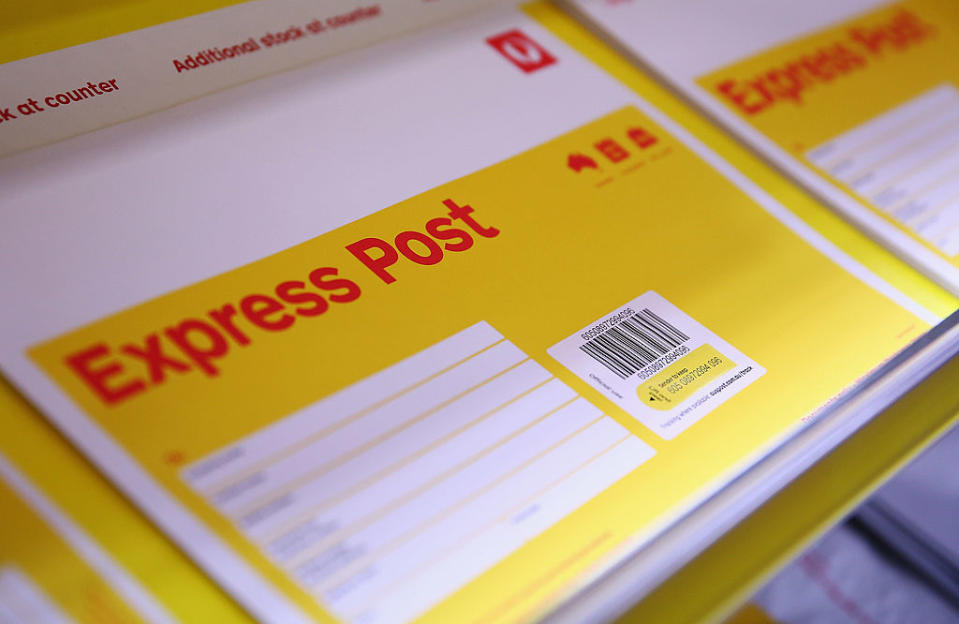The AusPost scam that could ruin Christmas

Australians have been told to stay vigilant towards scams this Christmas, with a deceptive Australia Post text scam currently doing the rounds.
Related story: Spotify scam harvests users' credit card details
Related story: 15.9 million Aussies at risk of major bank scam
Related story: Sophisticated Woolworths scam rears ugly head
The Australian Communications and Media Authority (ACMA) on Thursday said the phishing text scam was targeting Australia Post customers in the lead-up to Christmas.
ACMA Authority member Fiona Cameron said the authority is working with telcos to address the scam which comes in the form of a fake text from Australia Post, claiming there was a problem with the delivery of a package.
“The SMS includes a link to a fake Australia Post website that will ask for your personal and financial details,” Cameron said.
“If you receive a suspicious SMS messages, delete the message and do not click the link.”
The warning comes as ACMA also names its top five phone scams of 2019, which together accounted for 87 per cent of the scams reported to the ACMA.
The AusPost scam isn’t the only scam Aussies should be looking out for: here are others that have caught Australians off-guard.
Top five phone scams of 2019
NBN impersonation scam: 4,419 reports
In this scam, people pretending to be from the NBN Co, or an internet provider calls and says there is a problem with their connection which requires remote access to fix.
But once you’ve given the scammer remote access to your computer, they can install malware or steal your details.
Computer virus / tech support scam: 1,761 reports
Similar to the NBN scam, this scammer claims to be from a telco or computer company who will tell you your computer has a virus. They’ll then use remote access to steal your details or install malware.
DNCR registration scam: 1,245 reports
With this scam, victims are targeted by people claiming to be from the Do Not Call Register. These scammers will ask for financial and personal details with the promise that victims just need to pay a small fee to remove their number from telemarketers and nuisance calls.
Accident claim scam: 435 reports
Under this con, car crash scammers contact victims and pretend to help you file an insurance claim, but actually just sell your personal details for money.
So called ‘Chinese scam’: 417 reports
These nasty scams target Australia’s Chinese community, with two major forms using extortion through fake kidnappings and arrest threats.
Speaking in Mandarin, the scammer will call and ask for the victim to call them back and then claim that the victim is in legal trouble due to parcels intercepted containing fraudulent documents like fake passports.
The scammer then threatens to extradite the victim unless a huge fee is paid.
But scammers also tell victims - often students - that they have been involved in criminal activity and threaten them with criminal sanctions against themselves and their families if they do not pretend they have been kidnapped. Victims are told to take photos of themselves bound and gagged which are then used to extort money from their families.
Plan to tackle scams
“The top three on the list are all impersonation scams that many people will be familiar with,” Cameron said, adding that ACMA would boost scam-fighting efforts next year.
This will be in the form of an action plan which forces telcos to share more data and work together to block scam callers.
“There will also be a trial that will identify where high volumes of scam calls are coming from, and have Australian carriers work with their international counterparts to block those calls,” she added.
“We are confident that we can significantly reduce these scams in a bid to protect Australia.”
What do I do if I get a scam call or text?

The first step is to hang up, block the number and then report the call to Scamwatch.
“If you are unsure whether a call is a scam or not, hang up and contact the organisation the caller claims to be from to verify the details,” Cameron said.
Make your money work with Yahoo Finance’s daily newsletter. Sign up here and stay on top of the latest money, news and tech news.

 Yahoo Finance
Yahoo Finance 
